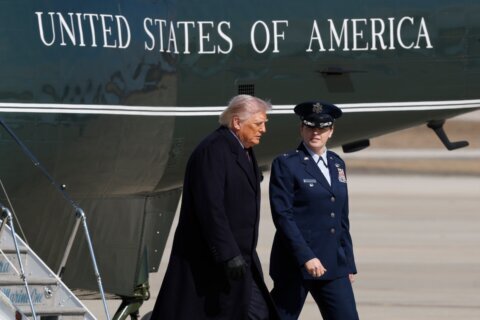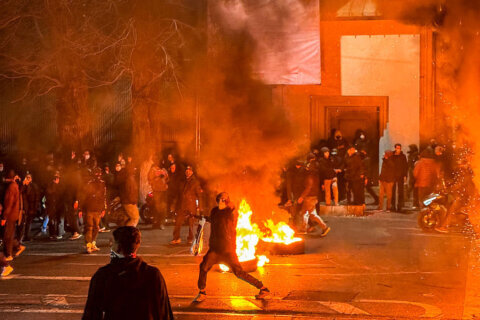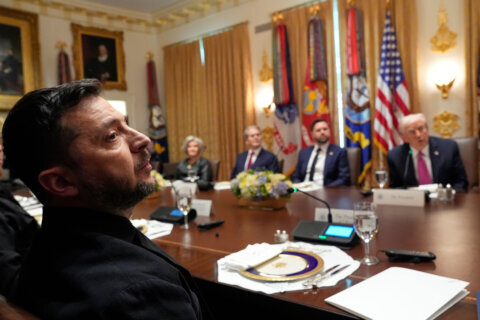WASHINGTON — Twice this week, airborne U.S. fighter jets from the Incirlik Airbase in Turkey had to divert to avoid getting too close to Russian jets that hadn’t informed the U.S. they were in Syrian airspace.
“We have taken measures to reroute aircraft as necessary, when there’s an air issue where we might be getting close,” said Pentagon spokesman Capt. Jeff Davis.
According to U.S. military sources, the Russian planes closed to within 20 miles, so close that the U.S. pilots identified them via on-board cameras.
Russia’s military activity has created a difficult operational environment for the U.S.-led coalition fighting the Islamic State of Iraq and the Levant (ISIL).
In addition to little or no warning about the operations of its fighter jets, Russian officials said Wednesday they launched missiles from ships in the Caspian Sea.
The missiles traveled almost a thousand miles over Iran and Iraq to strike targets in Raqqa and Aleppo provinces in the north and Idlib province in the northwest.
There is no evidence that U.S. coalition forces were warned or that permission to use Iraq’s airspace was granted.
The Russian Defense ministry has gone to great length on social media to point out that it’s focused on ISIL targets. The tweet below was posted at 2:30 p.m. EST, Oct. 7.
Col.Gen.Viktor Bondarev:Russian #AirForce air group performed 112 strikes against #ISIS facilities in Syria since September 30 by October 7
— Минобороны России (@mod_russia) October 7, 2015
The tweet is part of what’s been a steady Russian government social media campaign to update the public on certain military activities going on inside Syria.
The U.S. military said it’s seeing something more.
“Where we have seen Russia strike and Russia conduct its operations in Syria so far have been predominantly focused on areas of regime operations and not ISIL,” Davis said.
Secretary of Defense Ashton Carter, while visiting U.S. troops in Spain and Italy Wednesday, said, “this is something we continue to think is evidence of a misguided strategy.”
Not only have the U.S. and its coalition partners noticed and complained about the strikes on Syrian opposition forces, but those very opposition forces have begun to mobilize against Russian forces as well.
In a joint statement obtained by Reuters, more than 40 groups — with as many as 20,000 members who want to depose Syrian President Bashar al-Assad — called for unity of purpose. They also made an appeal for money from wealthy Arab states and donors to fight what it called “Russian and Iranian occupation” of Syria.
Among the items on their wish-list were anti-aircraft weapons.
“If they get effective anti-aircraft weapons and start shooting down Russian planes then that would be really serious,” said Richard Barett, senior vice president at the Soufan Group. “I don’t know what Russia would do in that case.”
The former coordinator of the United Nations Al Qaida-Taliban Monitoring Group, Barrett surmises hostile action toward a Russian fighter jet could introduce a specter similar to the embarrassment the Soviet military went through in Afghanistan in the 1980s Soviet-Afghan War.
“It [Russia] would probably increase its bombing campaign, and probably also increase the number of mercenaries who are going there already and then you get dragged into a ground war, like in Afghanistan in the 1980s that doesn’t have a natural end.”








